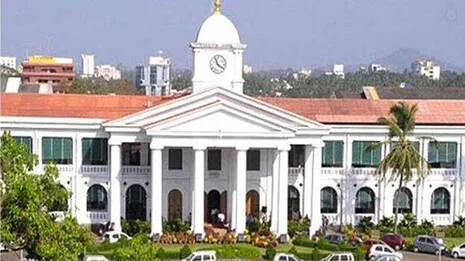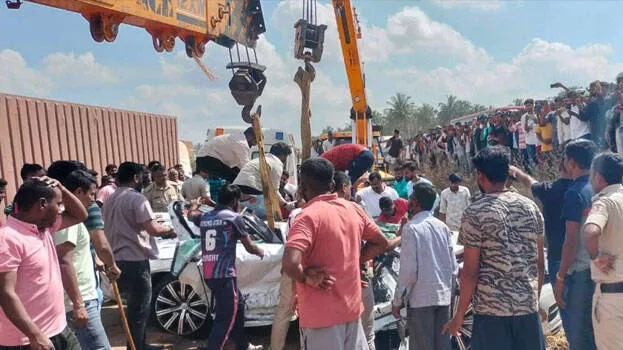
Coming out of Blue Hill, Maine, and heading for Brooklin in the almost-always-dark after driving all day, south from Nova Scotia and the Canadian border. Read this article for free: Already have an account? To continue reading, please subscribe: * Coming out of Blue Hill, Maine, and heading for Brooklin in the almost-always-dark after driving all day, south from Nova Scotia and the Canadian border. Read unlimited articles for free today: Already have an account? Opinion Coming out of Blue Hill, Maine, and heading for Brooklin in the almost-always-dark after driving all day, south from Nova Scotia and the Canadian border.
You used to get to the Stevens Bridge on that road, a crossing set down tight over fast water. It was a beauty of a bridge, a concrete curved span built in 1926 and only torn down and replaced two years ago. It was one year older than my father, if he had still been alive.

It was grey-sandy-beige and looked as though its surface would feel like sandpaper against your palms, a wonder of sweeping arcs and vertical lines, formed and cast almost 100 years ago. T. H.
Butler Smythe photo The writer’s late mother delighted in taking over the steering wheel when the family approached George Stevens Bridge in Blue Hill Falls, Maine. It was the road on which she learned to drive. But the water underneath was a wonder, too.
You only got to see it for a moment or two, as you cut out of the tight-to-the-side-of-the-road trees on one side, drove onto the abutment and the bridge, and then almost immediately did the same in reverse, vanishing back into the tunnel of tall trees that reach in and over the shoulder on both sides. The water was the constant drain-and-fill of the tug-of-war between the ocean and a huge tidal pond, Salt Pond, so the narrowing where the bridge stood was full of deep fast water and foam and the dangerously slick looking sucking spin of treacherous brownwater whirlpools. It was a perfectly made dovetail joint of beauty and menace.
And by then, my father would have surrendered the wheel, often because it was getting dark and his eyes did not adjust well to the glare of opposing headlights. But primarily because that part of Maine was my mother’s home ground, and the road from Blue Hill was where she learned to drive. It was her road.
Where she learned to drive — that alone was a concept that defied understanding, because for us, she had always driven. But more on that in a moment. She would take the wheel in our Volkswagen van, and the combination of fun and terror would begin.
She would drive that big cardboard box of a van like it was a sports car, throwing it sideways over to the absolute very edge of the asphalt so that the whole vehicle leaned dangerously to the side, whipping through the pitch-black night like a pilot whose hands know their aircraft better than their conscious thoughts do. We’d cut corners within inches of too tight, plunge and leap up through dips in the road that left our stomachs behind, lose our breath and recover it again, gasping. And we, the fraternity of the three brothers, would be thrown around the back of the van against the anchors of our seatbelts, shoulders clashing into one another, half-hysterical with laughter, while also half terrified.
Dad would just hold on: there was a moulded handle on the dash in front of the passenger seat. Big, square dad, slow to anger, quick to smile at the worst of jokes. Holding on.
And sometimes, somewhere in the middle of that wild carnival ride, mom would start to laugh. Her laugh was one that started deep in her belly and rang out loud and honest. There is a point in life when you realize your mother — where you realize your parents — are other people, larger people than you know.
Bigger people, broader people than you know, that, while they know almost everything about you that you let them know, there’s plenty you don’t know about them. The point, I think, where I realized that was much more to my mother than, well, my mother. Before she met me, my mother had all kinds of history.
I learned much of it later — sometimes, much later, after she died. That there was someplace where she had actually learned to drive was just one small part. She was a marine biologist who researched why loggerhead turtles could eat poisonous, stinging Portuguese man-of-war jellyfish without getting stung.
She was a scuba diver who wore heavy lead diving belts to inch her downwards into the depths of salt lakes, to take samples for other scientists who stood on the shore. She learned to fire a revolver, so she could camp alone in the western U.S.
She was a pragmatist who, after I told her I wanted to be a doctor, brought home two hoary and bloated rabbit carcasses, provenance unknown, for me to dissect, probably testing to see if helping to fund me through medical school would have been a good investment. (I got as far as cutting through the abdominal wall of one of the pair. The resulting hissing miasma cleared her and I both from the kitchen.
) I learned a lot that day. Afterwards, I stuck, to a large degree, to words. Winnipeg Jets Game Days On Winnipeg Jets game days, hockey writers Mike McIntyre and Ken Wiebe send news, notes and quotes from the morning skate, as well as injury updates and lineup decisions.
Arrives a few hours prior to puck drop. I’m sorry the Stevens Bridge is gone: I regret that I didn’t even know it was gone until last week, that I didn’t get to go there one more time. I’m sorry that mom and dad are gone.
I’m sorry that I thought I knew them completely, when I only truly knew the depth and breadth of my parents as ...
my parents. That slim slice is often what we get. Russell Wangersky is the Free Press Comment Editor.
He can be reached at [email protected] Russell Wangersky is Perspectives Editor for the , and also writes editorials and columns.
He worked at newspapers in Newfoundland and Labrador, Ontario and Saskatchewan before joining the in 2023. A seven-time National Newspaper Award finalist for opinion writing, he’s also penned eight books. .
Russell oversees the team that publishes editorials, opinions and analysis — part of the ‘s tradition, since 1872, of producing reliable independent journalism. Read more about , and . Our newsroom depends on a growing audience of readers to power our journalism.
If you are not a paid reader, please consider . Our newsroom depends on its audience of readers to power our journalism. Thank you for your support.
Russell Wangersky is Perspectives Editor for the , and also writes editorials and columns. He worked at newspapers in Newfoundland and Labrador, Ontario and Saskatchewan before joining the in 2023. A seven-time National Newspaper Award finalist for opinion writing, he’s also penned eight books.
. Russell oversees the team that publishes editorials, opinions and analysis — part of the ‘s tradition, since 1872, of producing reliable independent journalism. Read more about , and .
Our newsroom depends on a growing audience of readers to power our journalism. If you are not a paid reader, please consider . Our newsroom depends on its audience of readers to power our journalism.
Thank you for your support. Advertisement Advertisement.










